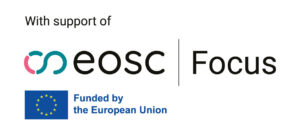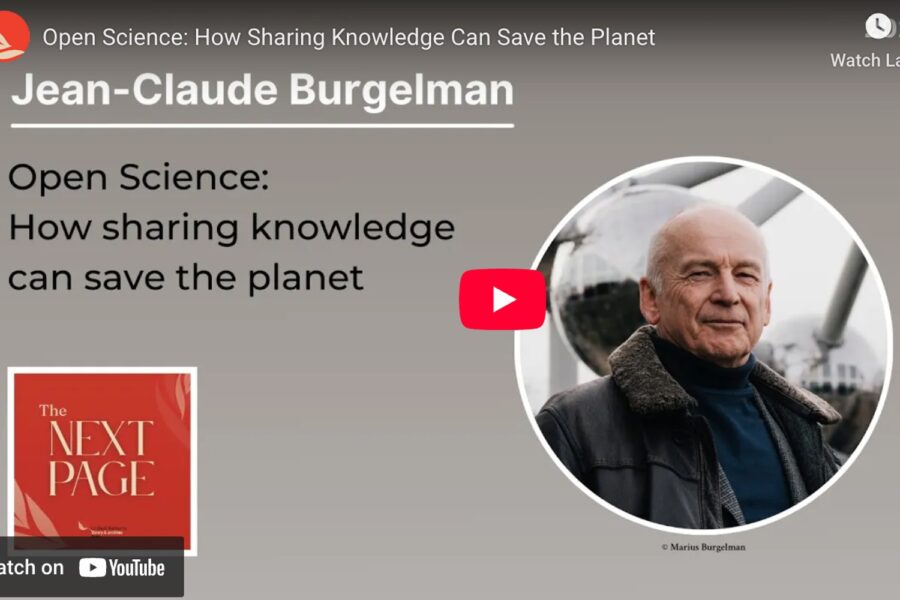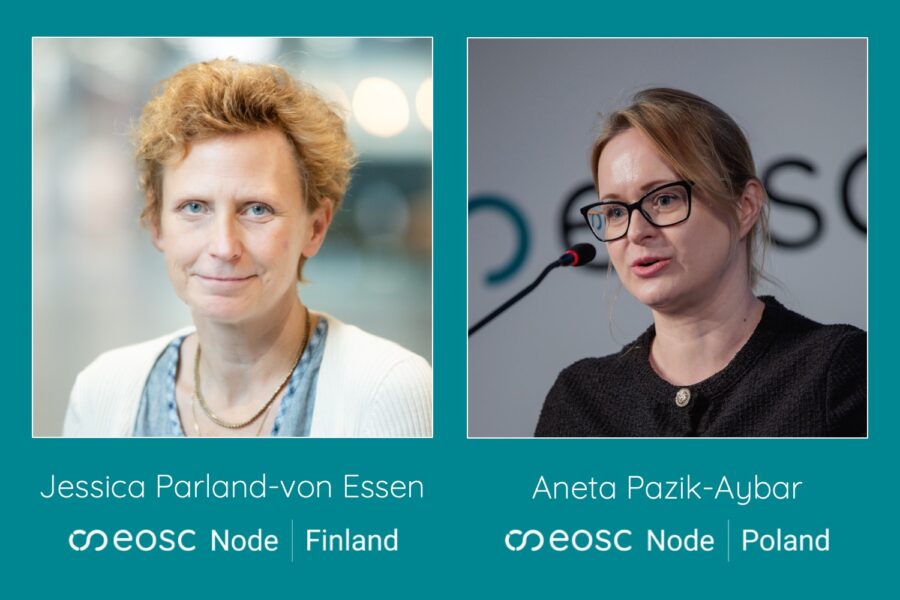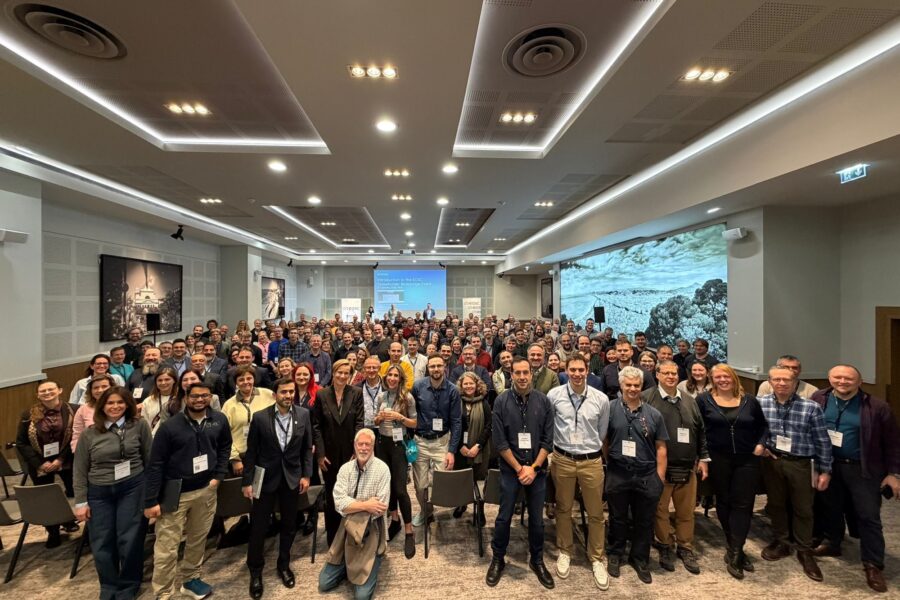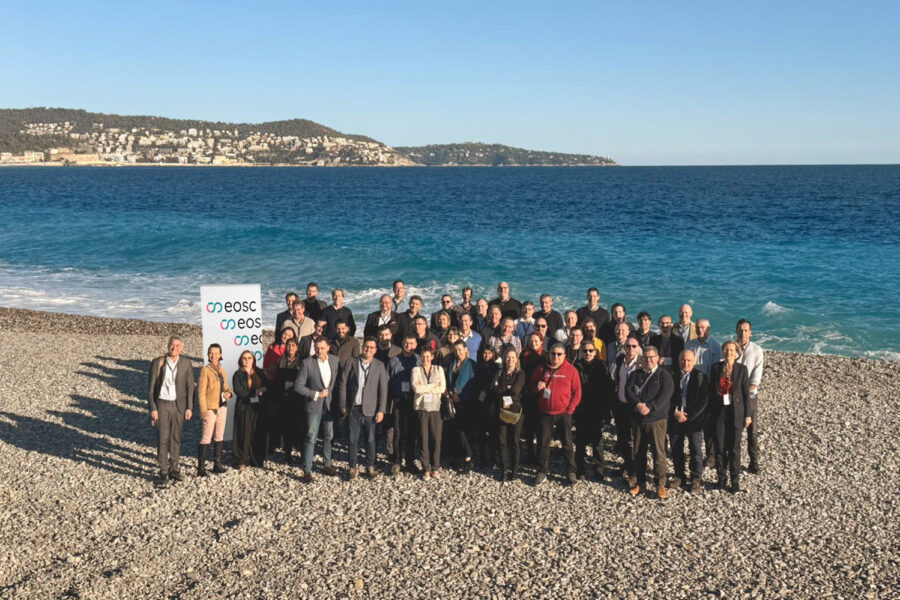BUDAPEST—On Thursday, 7 November 2024, Hungary hosted its second National Tripartite Event, bringing together the Hungarian research community and representatives of the EOSC Tripartite Governance, including representatives of the EOSC Association, the European Commission, and the EOSC Steering Board.
Held in a hybrid format, the event welcomed in-person participants at the National Research, Development and Innovation Office (NRDIO) in Budapest, alongside virtual attendees. Organised in conjunction with the European Tripartite Event during Hungary’s presidency of the EU Council, the event served as a crucial platform for dialogue, discussing progress of Open Science adoption in Hungary, and the interest of Hungary to contribute to the build-up phase of the EOSC Federation.
In her opening remarks, Borbála Schenk from the host organisation NRDIO highlighted the role of funding agencies in shaping research practices by setting requirements about how researchers and their organisations must progress towards Open Science. As the main funder in Hungary, NRDIO fully supports this trend, with a special focus on ensuring that the opening and FAIR sharing of data and services maximise the value research brings to society.
The contribution from the European Commission (EC), spanning from keeping the “policy momentum” to direct financial contribution via projects, was addressed by Stefan Liebler from the Open Science and Research Infrastructures Unit at Directorate-General for Research and Innovation (DG RTD). The EC will continue supporting the EOSC Federation to ensure it realises its value proposition at this critical time in which Europe must rethink how science is funded and practiced.
In the view of the EU Member States and Associated Countries, represented by Volker Beckmann, co-chair of the EOSC Steering Board, the next EU Framework Programme needs to transition away from project-based funding to ensure a sustainable operation of the EOSC Federation and the future EOSC Nodes. This shift, maintains Beckmann, is critical for the success of the EOSC Federation. Additionally, he continued, EU Member States and Associated Countries would like to take on a greater responsibility to reflect their significant role in funding research.
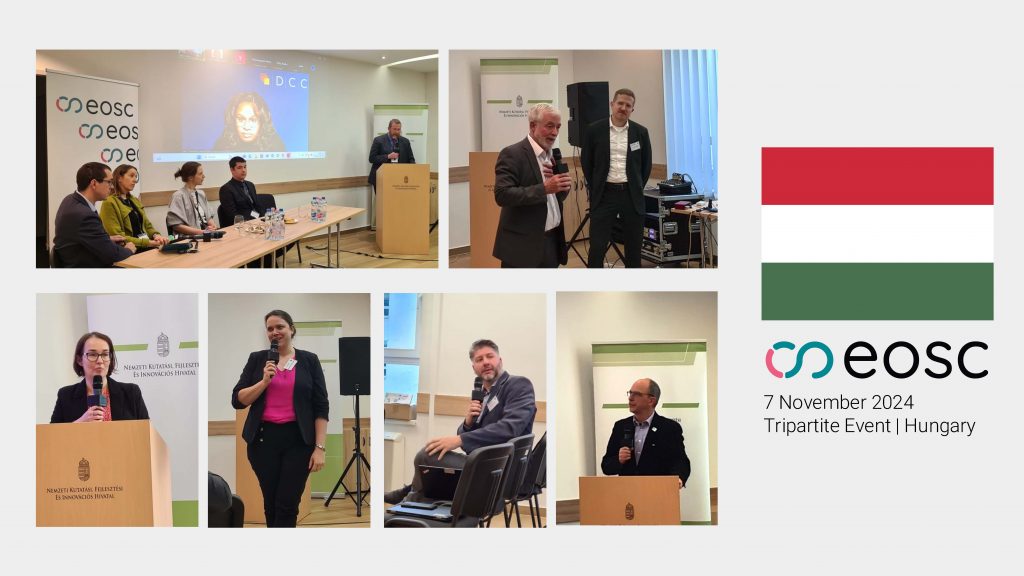
Karel Luyben, president of the EOSC Association, noted that the EOSC Federation is becoming a reality — moving beyond “talk and paper” — as EOSC-A members contribute significantly in-kind, exceeding expectations. Meanwhile, collaboration with INFRAEOSC projects has been strengthened. The second edition of the EOSC Winter School is scheduled for next January, and further involvement of the community in the process is being enabled via new Task Forces. The Association is heavily involved in the build-up of the EOSC Federation, gathering the views from members about the ongoing process, and leading the writing of the EOSC Federation Handbook.
Excitement about the launch of the EOSC Federation was palpable from the first panel. Representatives from the Hungarian community, Peter Szegedi from Directorate-General for Communications Networks, Content and Technology (DG CNECT) — representing the EOSC EU Node — and Bob Jones of the EOSC-A Board of Directors agreed on the need for a cultural shift among researchers. In Hungary, this shift is as equally as important as introducing changes in the scientific system to make it EOSC-compatible. There are expectations that the EOSC Federation will help countries achieve sustainability and motivate researchers to open data.
The progress and further plans of Hungary were reflected in the expression of interest to become an EOSC national node submitted as a response to the questionnaire run by the Tripartite this summer. All three national infrastructures are involved, with many datasets envisioned to be onboarded into the Federation. Worth noting is that in Hungary the private sector has been included in the discussion on Open Science early on, with some businesses signing the country’s Position Paper on Open Science in 2021.
János Mohácsi from Hungary’s EOSC-A Mandated Organisation KIFÜ moderated the second panel, which discussed the Hungarian community’s perspective on Open Science. Panellists agreed that while researchers seem open to sharing data, they often adhere to traditional practices of publishing data only when requested by journals, or when research projects end. This confirms the need for a cultural shift, which is facilitated by an accredited data steward training course offered by Eötvös Loránd Tudományegyetem (ELTE) and by the recent data steward trainings organised within the HUN-REN network. Other tailored courses also target upskilling scientific and support staff in Hungary.
In his closing remarks, Karel Luyben stressed that, contrary to common belief, Open Science does not necessarily make the scientific process more complex. In fact, said Luyben, with FAIR principles now accepted as the de facto way forward, a return to traditional scientific practices is unlikely. In other words, said Luyben, there is no turning back to the old ways of practicing science. Luyben went on to explain that embracing Open Science will only succeed if it involves citizens, letting society have a say in how science is done. If the “boundary conditions” for Open Science and EOSC are met, such as providing relevant and well-funded infrastructures, building skills, community support, and establishing necessary policies, said Luyben, the cultural change is more likely to become a reality.


